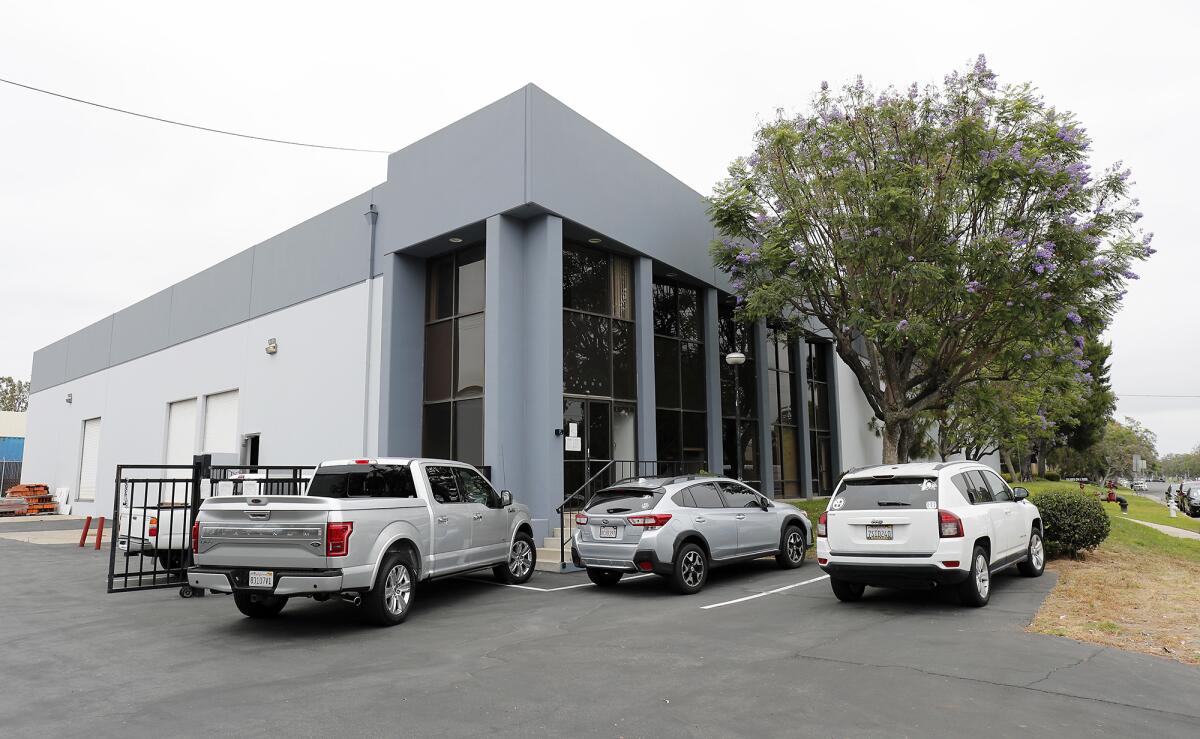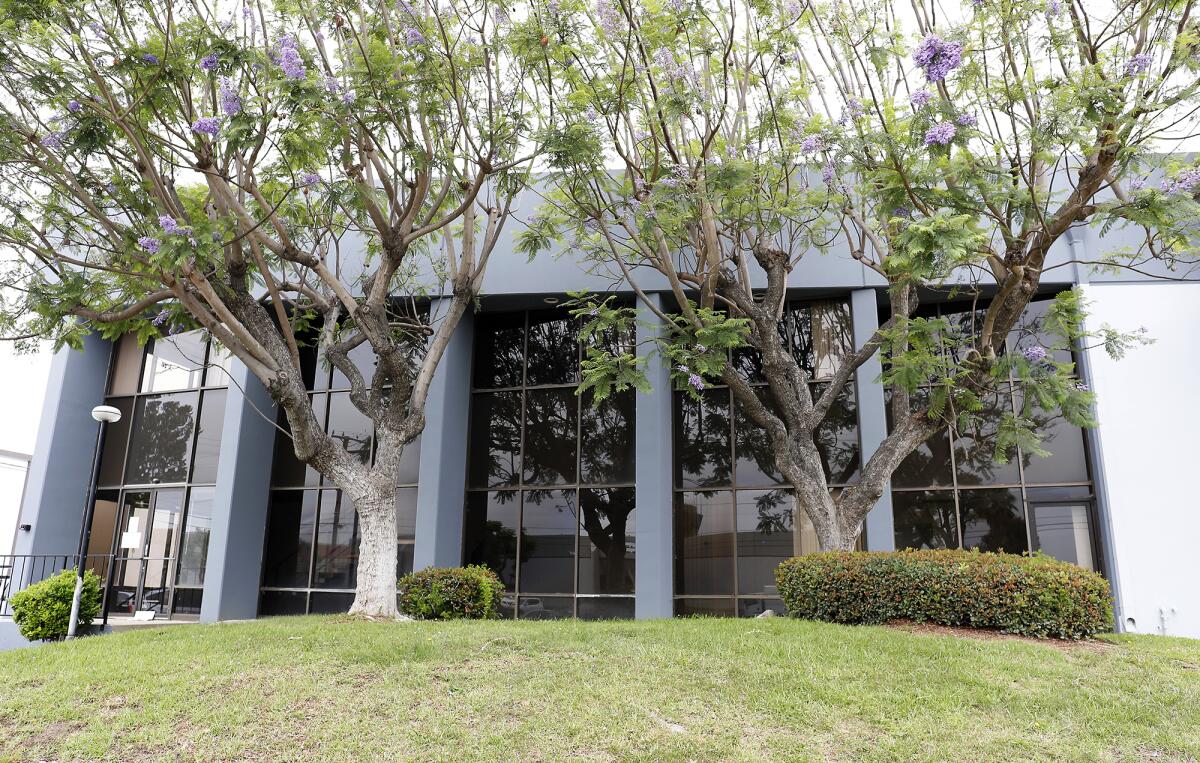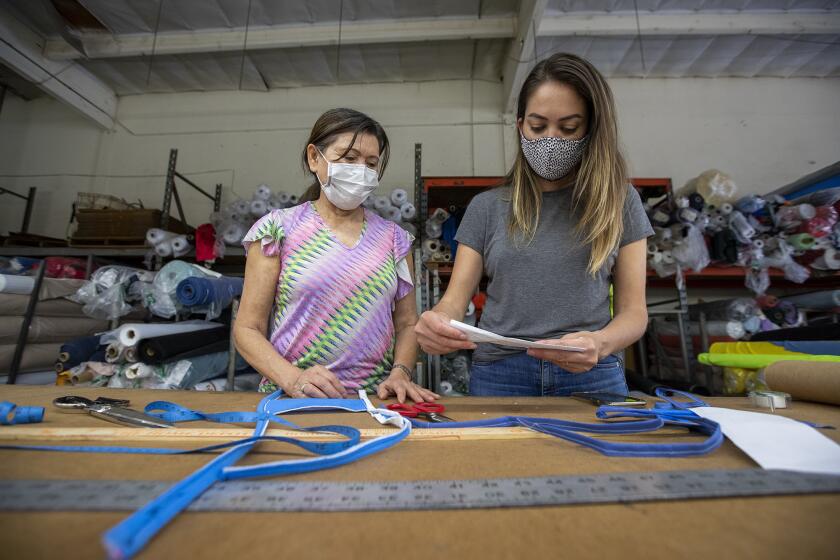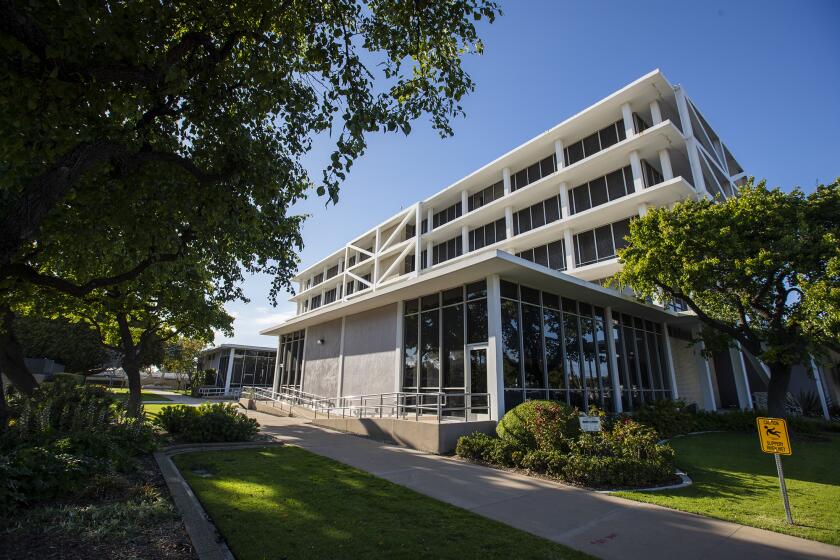Costa Mesa’s plan to retrofit warehouse for temporary homeless shelter draws criticism

- Share via
Costa Mesa city officials have taken a step forward in a years-long effort to provide temporary housing for homeless residents on a permanent basis, approving Tuesday a $3.65-million contract to begin constructing a bridge shelter at Airway Avenue.
But some in the community, including one advocate for the homeless, have expressed concerns the warehouse space may not be the best fit for the complex needs of the area’s unhoused population.
City Council members unanimously approved the contract with Cerritos-based Cal-City Construction, Inc. to retrofit a 12,285-square-foot portion of an industrial warehouse building to accommodate a 70-bed shelter and full-service kitchen with office and intake space.
The agreement includes a 5% contingency fee totaling $182,750. Most of the funding would be covered by nearly $2 million in Community Development Block Grants and additional county grants and allocations from the state, according to a staff report.

The industrial property, at 3175 Airway Ave., was purchased by the city for $6.9 million in March 2019. At around the same time, a 50-bed interim temporary shelter opened at Lighthouse Church of the Nazarene, on the city’s Westside. About 25 individuals currently reside there.
Public Services Director Raja Sethuraman said Tuesday the concrete tilt-up structure would require several infrastructure improvements to make it habitable and accessible to people with disabilities.
“Because now we’re converting industrial into a shelter environment, we need to have new gas, electric, water and sewer — all those connections,” he said.
Costa Mesa has been working for nearly a decade, since the formation in 2011 of a citywide task force, to examine and address the needs of homeless individuals.
Gov. Gavin Newsom issued a statewide mask order on Thursday, following growing concerns of a spike in coronavirus cases as Californians begin to leave home again.
Until 2018, however, people living in makeshift encampments along the Santa Ana River were regularly cited or arrested for violating local anti-camping laws.
A Jan. 2018 lawsuit filed by the nonprofit assistance agency Orange County Catholic Worker accused Orange County — and named Costa Mesa, Anaheim and Orange, in particular — of employing legal frameworks that drove homeless individuals to seek sanctuary in riverbed communities and then using local ordinances to force them from the encampments.
“At every opportunity the county and its cities have invested in enforcement instead of housing, blaming other entities for the problem, and leaving unhoused people nowhere to turn, nowhere to live, and nowhere to sleep,” the complaint stated.
A negotiated settlement agreement reached later that year stipulated cities could not continue to enforce anti-encampment ordinances until they met several requirements, including providing bridge shelters, where residents could access services that would help them find housing.
At Tuesday’s City Council meeting, some members of the public questioned whether spending nearly $11 million on converting a windowless warehouse into a temporary shelter with no recreation quarters — at a time when health experts advise physical distancing during the coronavirus pandemic — was the best option.
“The council is now at a crossroads that they did not or could not have anticipated when the Airway building was acquired,” said Richard Tucker in a public comment. “This building was never meant to be occupied by people. With all these people packed into small spaces, this is going to be the next COVID-19 hotspot.”
Tucker and others instead advocated for alternatives, namely leasing under-occupied hotels and motels or using portable trailers that could provide temporary tenants with isolation or let them cohabitate with partners or children.
To recover from titanic revenue losses endured during the coronavirus pandemic, officials committed to nearly $10.8 million in departmental cuts, employee furloughs and draining a declared disaster relief fund.
One commenter suggested a portion of the 114-acre state-owned Fairview Developmental Center on Harbor Boulevard — parts of which were recently re-equipped to house severe COVID-19 patients but which is due to close its doors June 30 from underuse — might be an option.
Council members held firm in their intention to move forward with the Airway Avenue site.
“We have been very thoughtful, to the point of being slow on this,” said Councilwoman Andrea Marr before the 7-0 vote. “It’s time to move forward with our plans for permanent (temporary) shelter — this is the step to do it.”
Attorney Brooke Weitzman, who represented the plaintiffs in the 2018 Catholic Worker lawsuit, commended Costa Mesa officials for working to comply with the settlement terms but questioned the risk of creating congregate housing with the threat of coronavirus still looming.
The long-term leasing of hotels, unoccupied office buildings and trailers, she said, might be a safer and more fitting option. Weitzman also named Fairview Developmental Center as a potential solution.
“There are empty rooms meant to be used as housing by the state,” the attorney said. “I have trouble reconciling, on behalf of my homeless clients, why they are living in congregate shelters so close to a perfectly good building.”
If housing is the goal, she continued, then people need a place not just to lay their heads, but where they can feel safe and work on overcoming the issues that contributed to their homelessness in the first place.
“If it’s not a place that’s comfortable, a place to spend the day, you can’t really move forward,” Weitzman said. “That’s just warehousing humans.”
All the latest on Orange County from Orange County.
Get our free TimesOC newsletter.
You may occasionally receive promotional content from the Daily Pilot.






